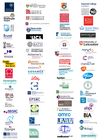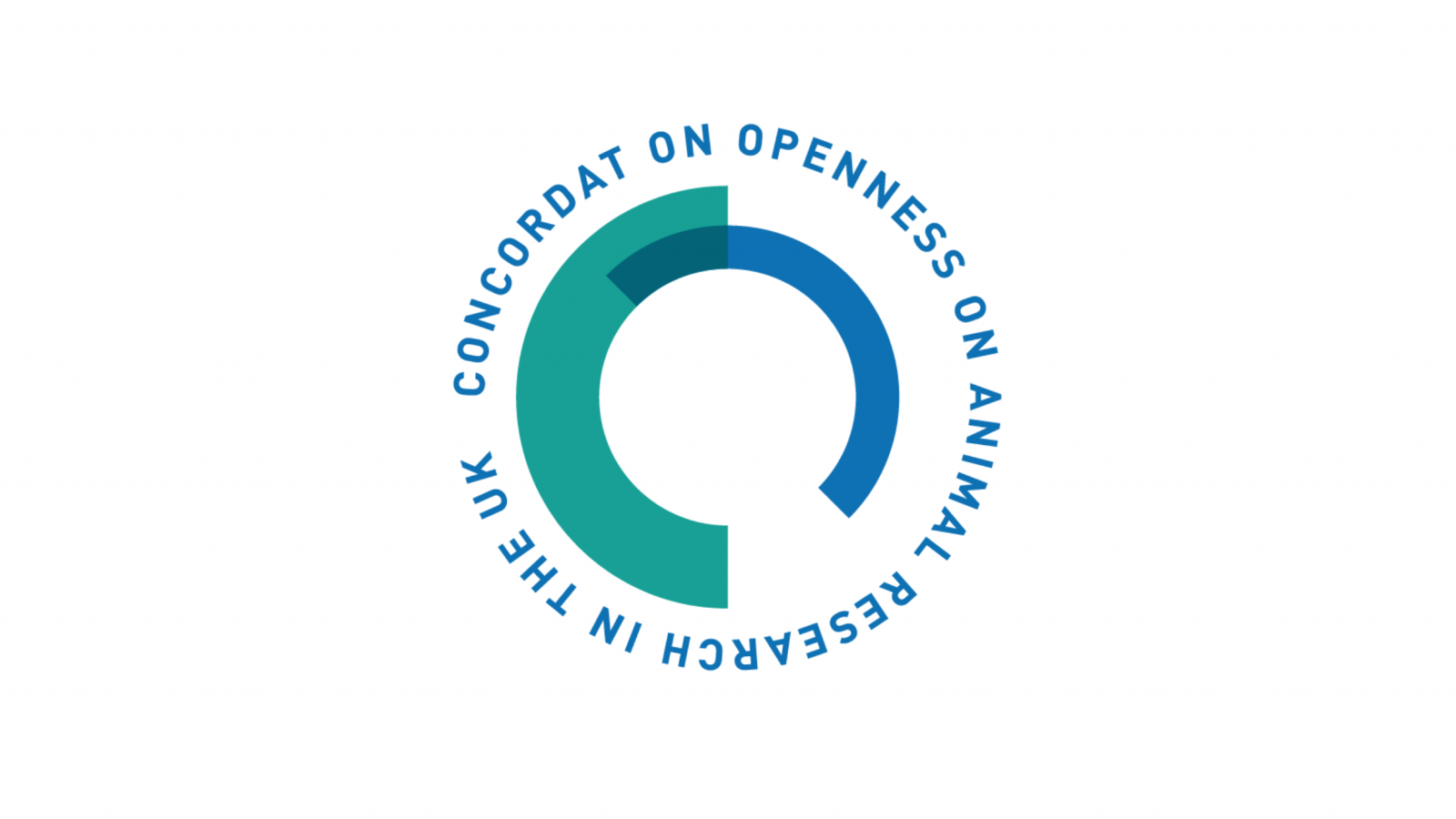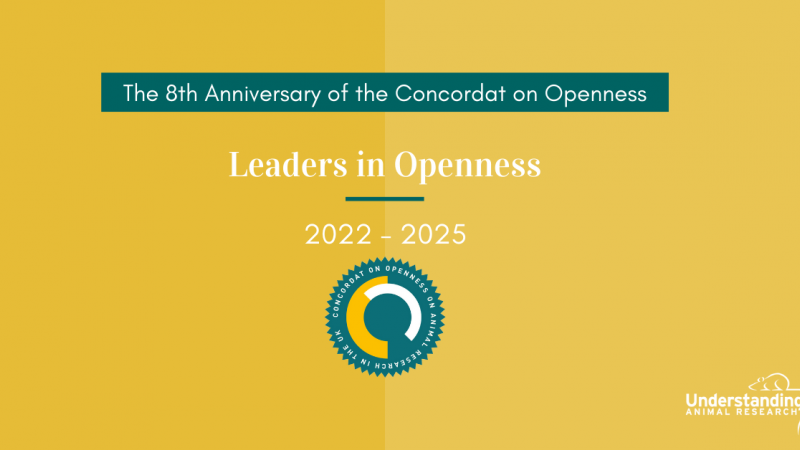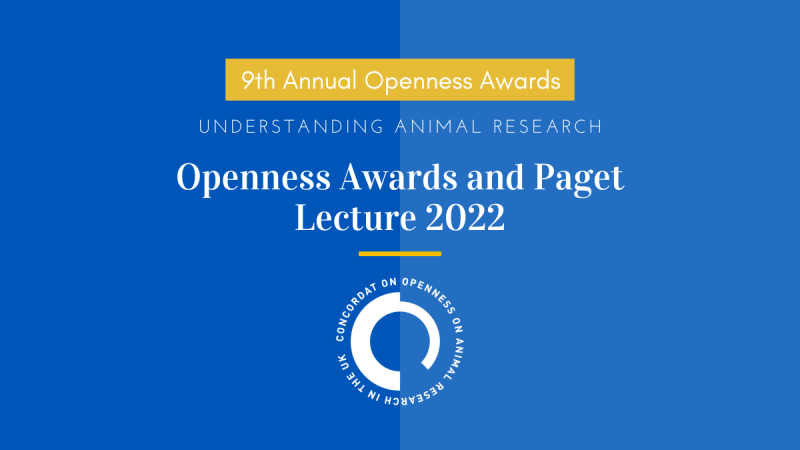 72 ORGANISATIONS SIGN CONCORDAT ON OPENNESS ON ANIMAL RESEARCH IN THE UK
72 ORGANISATIONS SIGN CONCORDAT ON OPENNESS ON ANIMAL RESEARCH IN THE UK
UNIVERSITIES, CHARITIES, COMMERCIAL COMPANIES, RESEARCH COUNCILS, UMBRELLA BODIES AND LEARNED SOCIETIES COMMIT TO HELPING THE PUBLIC UNDERSTAND MORE ABOUT ANIMAL RESEARCH
Opinion polling in 20121 showed that the public wants to know more about what goes on in animal research. Since then the bioscience community has worked together to set out how it will be more open about why and how it uses animals in research.
The final Concordat on Openness on Animal Research in the UK is published today (14 May 2014), signed by 72 organisations from across the scientific sector.
These 72 signatories have undertaken to fulfil the Concordat’s four commitments:
- We will be clear about when, how and why we use animals in research
- We will enhance our communications with the media and the public about our research using animals
- We will be proactive in providing opportunities for the public to find out about research using animals
- We will report on progress annually and share our experiences
The Concordat is underpinned by an agreement that communication about animal research should provide accurate descriptions of the benefits, harms and limitations of research, be realistic about the potential outputs of such research and be open about its impact on animal welfare and the ethical considerations involved. The document also strongly encourages signatories to consider whether they can offer access to their animal research facilities for accredited journalists and media organisations, MPs, and local school, patient and community groups.
Under each of the commitments is a series of actions that signatories can take to fulfil them. These include identifying spokespeople who will answer questions about an organisation’s use of animals; supporting researchers who would like to talk about their work using animals; including information on the role that animal research has played in announcements of scientific advances, and providing more images and videos of the reality of animal research.
The work was informed by a public dialogue project2 and a workshop with journalists. The draft Concordat was opened for a six-week public consultation at the end of 20133.
Geoff Watts, Chair of the Steering Group for the Concordat development process, said: “I am delighted that so many organisations have signed the Concordat. This widespread support for openness demonstrates the change in attitude that we have seen from the life science sector over the last few years. Developing this Concordat has been a long and careful process, and I am convinced that it will result in there being much more opportunity for the public to find out about the reality of animal research in this country.”
Professor Dominic Wells, member of the Steering Group and Professor of Translational Medicine at the Royal Veterinary College, said: “Animal research remains vital to developing the treatments that can benefit both humans and animals. While ten years ago there was still a real fear of animal rights extremism that prevented many scientists being open about their work, the climate is now much more conducive to proper communication about the part that animal research has played and continues to play in scientific, medical and veterinary progress.”
Wendy Jarrett, Chief Executive of Understanding Animal Research and Chair of the Working Group, said: “For many years, the only ‘information’ or images that the public could access about animal research were provided by organisations opposed to the use of animals in scientific progress. This is why many people still think that animal research means testing cosmetics and tobacco, despite the fact that these have been banned in the UK for more than 15 years. The Concordat is an excellent opportunity to dispel these myths and give the public a chance to see the ground-breaking research that is being done on its behalf.”
Further organisations are welcome to sign the Concordat at any time.
For further information please contact:
Chris Magee on 020 3675 1234 / 07473 259 859 / cmagee@uar.org.uk
Wendy Jarrett on 020 3675 1231 / wjarrett@uar.org.uk
- http://www.ipsos-mori.com/researchpublications/publications/1512/Views-on-the-use-of-animals-in-scientific-research.aspx
- In the summer of 2013 Ipsos MORI conducted a public dialogue to understand the expectations of the general public with regard to openness and transparency in animal research. This public dialogue was funded by Sciencewise (the UK’s national centre for public dialogue in policy making involving science and technology issues), the Medical Research Council and the British Pharmacological Society. More information on the dialogue can be found here: http://www.sciencewise-erc.org.uk/cms/openness-on-animal-research-dialogue/
- A public consultation on the draft Concordat ran for six weeks at the end of 2013. The results of the consultation can be downloaded here: http://www.understandinganimalresearch.org.uk/resources/document-library
Last edited: 28 October 2022 15:11




